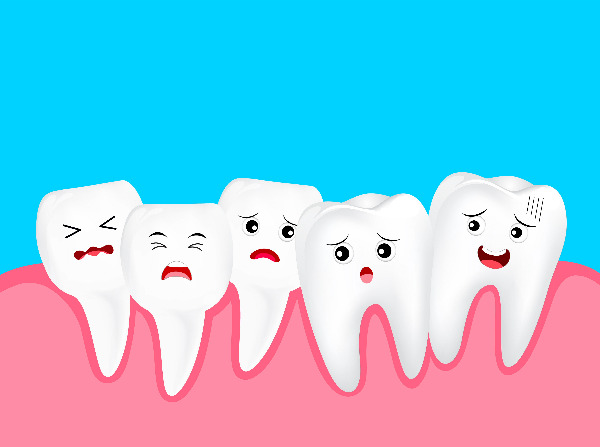While braces are commonly worn for cosmetic reasons, they are also used to correct orthodontic problems that can impact your health. Often, orthodontic treatment occurs as a pre-teen/teen, but more and more adults are now opting for that beautiful, healthy smile. Keep reading to learn about signs you may benefit from braces and whether or not braces are worth the investment.
This blog covers:
- Signs You Need Braces
- How Old Do You Have to Be to Get Braces?
- Are Braces Worth It?
- How to Get Braces

Signs You or Your Child Need Braces
Since kids’ adult teeth are still emerging, it may be more difficult to determine whether they need or will need braces. If their baby teeth are crooked or crowded, they will likely need orthodontic care later. Other signs a child will need braces include:
- Lower jaw looks asymmetric or shifts to the side when biting
- Frequent tongue biting, or biting the inside of the cheek
- Thumb-sucking when the permanent incisors are growing in
- Early and late loss of baby teeth
If your child is experiencing one or more of these symptoms, they may need early treatment. The American Association of Orthodontics (AAO) recommends an evaluation by an orthodontist as early as age seven if you have noticed one of these signs. If there is an issue or concern, your orthodontist can create a baseline and then recommend the best treatment, the timeline, and an estimate of how long treatment will take.
Once permanent teeth have come in, here are some signs that braces may be beneficial:
Visibly crooked or crowded teeth
It’s very common for young people to develop crooked and crowded teeth. The crowding and misalignment can worsen as time passes, making it difficult to keep the teeth clean. Many problems can occur without clean teeth, such as gum disease, tooth decay, bone loss, and halitosis (bad breath).
Overbite
An overbite is when the upper front teeth overlap the lower front teeth too much. This can cause excessive wear on the upper and lower front teeth, and in severe cases, eating discomfort and gum recession.
Underbite
Underbites occur when the lower front teeth bite in front of the upper front teeth. Underbites affect 5-10% of the population and can cause difficulty in speech and chewing. Patients with underbites are often self-conscious of their lip and mouth posture.
Crossbite
A crossbite occurs when the upper back teeth bite inside the lower back teeth. This misalignment can affect either a single tooth or multiple teeth. Crossbites can cause accelerated tooth wear in adults, and asymmetric jaw growth in children. Braces can fix the issue depending on the cause of the crossbite, but in growing patients, jaw expansion will be required.
Pain and difficulty chewing
Biting your inner cheek or tongue when chewing can be caused by misaligned teeth. If you experience pain or difficulty chewing, mention it to your dentist and orthodontist.

Benefits of Getting Braces
1. Improved Oral Health
Straight teeth are easier to clean, which can significantly improve your overall oral health. By aligning your teeth, braces reduce the risk of cavities, gum disease, and other dental problems.
2. Enhanced Appearance
A straight, well-aligned smile can boost your confidence and self-esteem. Many people find that their appearance improves significantly after undergoing orthodontic treatment.
3. Better Functionality
Properly aligned teeth and jaws function better. You’ll find it easier to chew and speak, and you might experience less wear and tear on your teeth.
4. Prevention of Future Dental Issues
Addressing orthodontic problems early can prevent more serious issues later in life. For example, correcting a misaligned bite can prevent excessive wear on certain teeth and reduce the likelihood of developing TMJ disorder.
5. Long-Term Investment
While the upfront cost of braces can be significant, they are a long-term investment in your dental health. The benefits of improved oral health, aesthetics, and functionality often outweigh the initial expense.
How Old Do You Have to Be to Get Braces?
While there is no particular age to get braces, orthodontic treatment is usually delayed until the permanent teeth start to come in. This could be between the ages of 8 and 14. However, getting braces doesn’t have an age limit, and many older teenagers and adults choose to seek orthodontic treatment.
Braces are also just one method of straightening you or your child’s teeth. More and more people are choosing to correct orthodontic issues with solutions like clear aligners, such as Invisalign. Compared to traditional metal braces, aligners provide a more comfortable and discreet orthodontic experience that teenagers and adults can appreciate. Your Raleigh orthodontist can help you determine the right solution for your needs and lifestyle.
Are Braces Worth It?
Braces are absolutely worth the investment, for multiple reasons. Straight teeth are easier to clean than crooked, overlapping, or overcrowded teeth. That, in turn, helps keep you from developing gingivitis, cavities, and other oral health issues.
Straighter teeth can also improve your appearance – both the aesthetic of your smile and the overall shape of your face. Overbites can cause your lower lip to protrude, and underbites can cause your chin to protrude. So, braces not only improve the functionality and health of your mouth and teeth, but your looks, too. That boost of confidence makes all the time and effort of getting braces worth it!

How to Get Braces: Visit Our Raleigh Orthodontist!
If you need orthodontic treatment and live in or near the Raleigh area, head over to Walton & Maready Orthodontics for a free consultation with x-rays. Our experienced orthodontists will assess your current alignment needs and help design a treatment plan that fits your lifestyle and budget. Request an appointment today!

